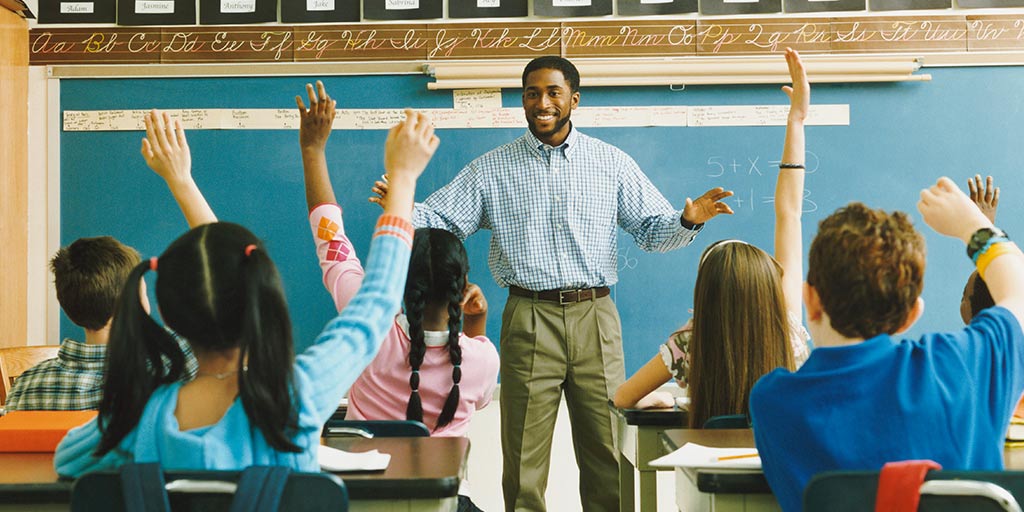Achieve Academic Success with Primary Science Tuition Singapore
Achieve Academic Success with Primary Science Tuition Singapore
Blog Article
Discovering the Various Training Strategies in Primary Science Education Today
The landscape of main science education is evolving, with numerous training techniques getting prestige in modern class. Inquiry-based discovering, hands-on experiments, and the combination of innovation are redefining how educators involve young minds. In addition, joint techniques and separated direction are being utilized to deal with the diverse needs of students, boosting both involvement and understanding. As we check out these techniques, inquiries arise concerning their performance and the implications for future educational practices. What might these changes in method mean for the following generation of students?
Inquiry-Based Discovering
Inquiry-Based Learning (IBL) is a pedagogical technique that encourages trainees to discover scientific ideas via doubting, examination, and hands-on experimentation. This technique emphasizes the duty of students as active individuals in their learning, promoting critical thinking and analytical skills. By involving with real-world questions, trainees end up being curious and motivated, which improves their understanding of scientific concepts.
In IBL, educators act as facilitators, directing trainees as they browse their queries instead than supplying details straight. This student-centered approach enables for distinction, accommodating various learning designs and speeds. Pupils create abilities in creating theories, making experiments, and analyzing information, which are important for scientific literacy.
Additionally, IBL fosters collaboration amongst pupils, motivating them to share findings and concepts. This cumulative questions advertises social abilities and a sense of neighborhood within the classroom. Moreover, the procedure of questions motivates strength, as pupils learn to embrace failing as a tipping stone toward understanding.
Hands-On Experiments
Hands-on experiments are a crucial element of effective scientific research education and learning, enhancing the concepts of inquiry-based understanding. These experiments allow pupils to involve directly with scientific concepts, fostering a much deeper understanding via experiential learning. By controling materials and observing end results, young students can comprehend abstract theories in tangible methods.
Such activities promote important thinking and analytic skills, as trainees assume results, conduct experiments, and analyze outcomes. This process motivates them to ask questions, fine-tune their understanding, and develop a clinical state of mind. Hands-on experiments can be tailored to diverse understanding styles, making certain that all trainees have the opportunity to involve meaningfully with the web content.
Moreover, hands-on experiments commonly urge cooperation among peers, promoting team effort and interaction abilities. Functioning in teams enables trainees to share concepts, discuss findings, and learn from each other, which improves their total instructional experience.
Integrating hands-on experiments into the key science curriculum not just enriches the discovering atmosphere yet additionally cultivates a lifelong rate of interest in scientific research. By proactively taking part in their education, students are most likely to create an enthusiasm for clinical inquiry that extends beyond the class.

Modern Technology Integration
Incorporating technology right into key science education and learning has come to be significantly crucial in fostering pupil involvement and boosting finding out end results. The usage of electronic tools, such as interactive simulations, virtual laboratories, and instructional software, gives pupils with opportunities to explore scientific ideas in cutting-edge means. These resources facilitate a much deeper understanding of intricate topics by allowing students to imagine and adjust variables that would certainly be impractical in a conventional class setting.
In addition, innovation integration encourages individualized learning experiences. Pupils can progress at their very own rate, revisiting challenging ideas via multimedia sources, which provide to various understanding styles. This flexibility not only sustains private development but additionally cultivates a feeling of autonomy in students.
Additionally, technology functions as a bridge to real-world science, connecting trainees with present research and specialist payments. Access to online data sources and scientific journals widens trainees' viewpoints on clinical inquiry and promotes vital assuming skills.
Collaborative Discovering
Collaborative knowing plays an essential role in key scientific research additional resources education by cultivating team effort and interaction skills amongst trainees. This approach motivates students to work together, click for info share expertise, and engage in analytical, which boosts their understanding of scientific principles. By taking part in team tasks, trainees find out to verbalize their concepts, listen to diverse point of views, and bargain remedies, every one of which are vital skills in both real-world and academic contexts.

Research shows that joint understanding can bring about increased motivation and interaction in scientific research topics, as pupils locate satisfaction in common experiences (primary science tuition Singapore). Furthermore, this method prepares pupils for future joint ventures, furnishing them with the skills needed for effective teamwork in higher education and specialist settings. Ultimately, accepting joint learning in main scientific research education and learning can considerably improve the learning experience and promote a deeper understanding of scientific query
Distinguished Guideline

Differentiated instruction can manifest in different methods, such as differing the content, processes, or items of understanding. Teachers might utilize tiered projects check this site out that offer differing degrees of complexity, allowing pupils to function at their particular readiness degrees. Furthermore, flexible organizing approaches can assist in partnership among pupils with various capabilities, fostering peer knowing.
Evaluation plays an essential duty in this strategy, as it informs guideline and aids teachers understand each student's unique demands. Developmental assessments, such as tests and monitorings, can direct instructors in changing their approaches to improve finding out end results. primary science tuition Singapore. Inevitably, by carrying out set apart direction in primary science education and learning, teachers can cultivate an extra efficient and equitable knowing environment, encouraging all students to reach their complete capacity in comprehending scientific phenomena
Conclusion
In summary, the diverse training approaches in main science education and learning, consisting of inquiry-based discovering, hands-on experiments, technology integration, joint discovering, and set apart direction, collectively add to a more effective understanding environment. These techniques promote essential reasoning, analytical abilities, and a deeper understanding of clinical ideas. By applying these strategies, educators can create engaging and supportive classrooms that address the varied needs of trainees, eventually promoting a lifelong rate of interest in scientific research and boosting academic achievement.
Inquiry-Based Understanding (IBL) is a pedagogical technique that encourages students to discover scientific concepts with wondering about, investigation, and hands-on experimentation.Collaborative knowing plays a crucial duty in key science education by cultivating synergy and interaction skills amongst trainees.Research shows that collective knowing can lead to increased inspiration and interaction in science topics, as trainees locate pleasure in shared experiences.In cultivating an inclusive learning setting, set apart guideline arises as a crucial technique to accommodate the diverse requirements and capabilities of trainees in main scientific research education and learning. Eventually, by applying differentiated instruction in primary science education, teachers can cultivate a much more equitable and efficient discovering environment, encouraging all trainees to reach their complete potential in comprehending clinical phenomena.
Report this page